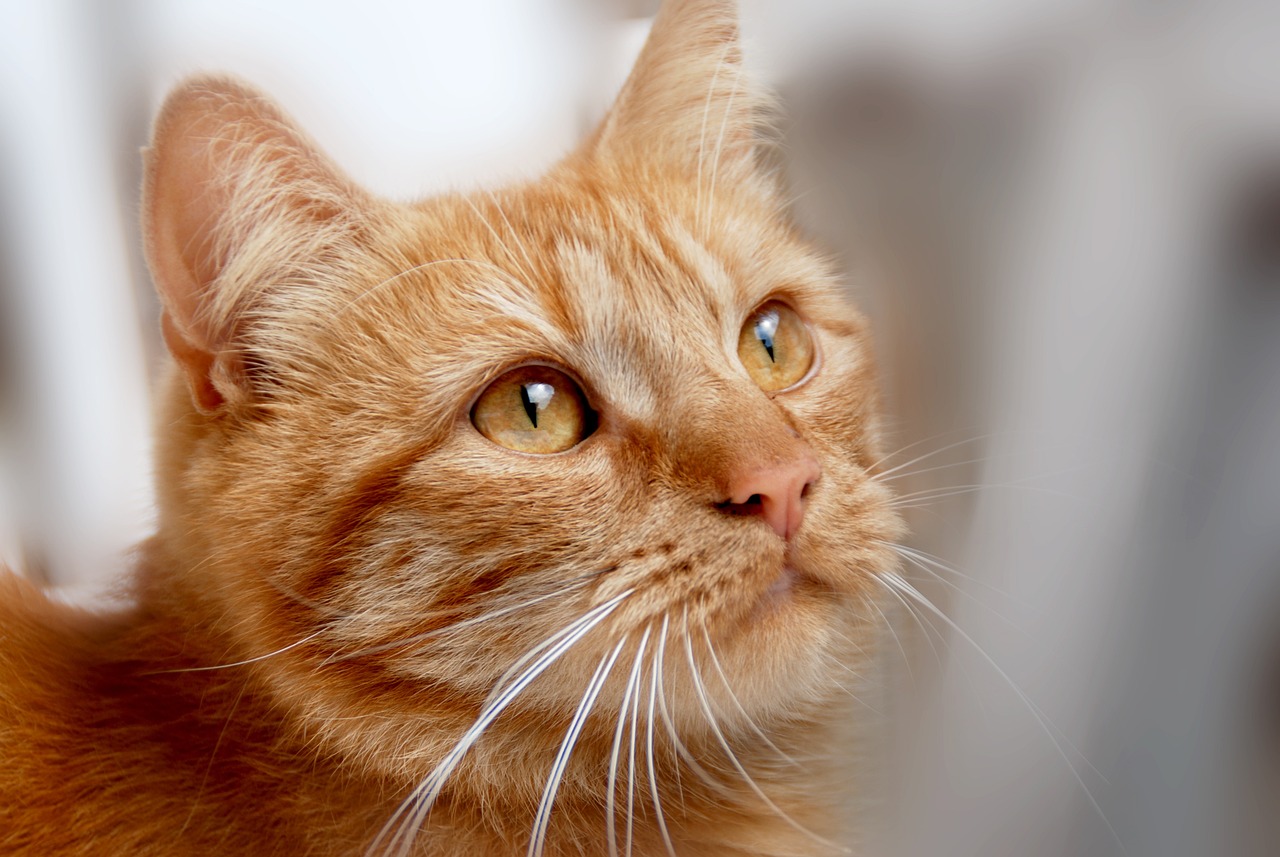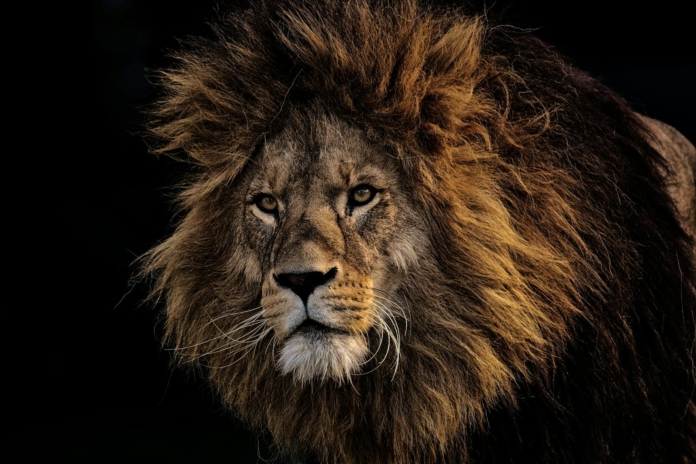Record-breaking swim
In the post Two Lions Make Record-Breaking Swim in Uganda – Wildlife Conservation Network, the story focuses on two brave lions, Tibu and Jacob, who swam across the Kazinga Channel. The Kazinga Channel is almost one mile long, filled with dangerous creatures like crocodiles and hippos.
Why is this story important? Well, this is the longest distance researchers have ever seen lions swim. Before, lions only swam short distances, but Tibu and Jacob changed that. Here is a bit more about their journey and why it matters.
Tibu and Jacob, two male lions, made six crossings of the Kazinga Channel in Queen Elizabeth National Park, Uganda. They were searching for mates, which is incredible given the dangers they faced. The channel is home to crocodiles and hippos, both much larger and potentially dangerous to the lions.
Jacob faced an even bigger challenge because he has an amputated leg. Despite this, he swam across the channel together with his brother. This extraordinary feat was even more impressive because Jacob had been previously caught in a poacher’s snare, losing a part of his leg but never his determination.
Importance of This Event
This event is significant for several reasons. Firstly, it shows the incredible lengths that animals will go to for survival and reproduction. Lions need to find new mates and territories, and Tibu and Jacob displayed what can be seen as sheer willpower to accomplish this.
“Tibu and Jacob’s journey highlights the resilience and determination found in nature.”
Secondly, it brings awareness to the difficulties lions face in the wild. Their home is not only filled with natural predators but also human threats such as poaching. The story of these two lions reminds us of how important conservation efforts are to protect such magnificent creatures.
A Glimpse at Their Experience
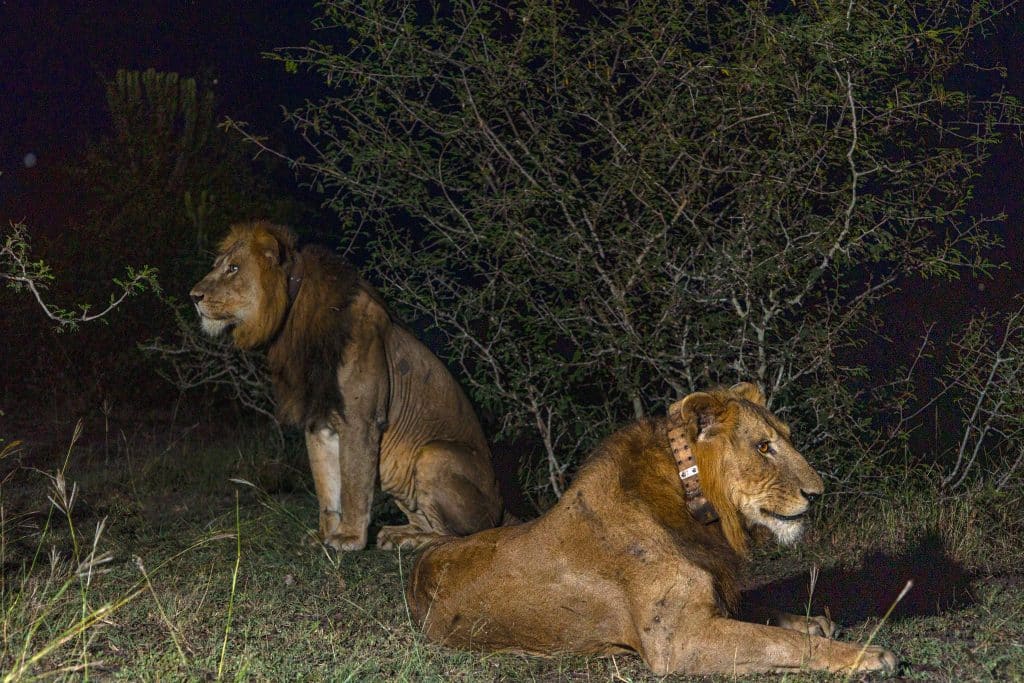
Tibu and Jacob
Dr. Lindsey and his colleagues wrote a paper about this record-breaking swim, emphasizing how these lions would only take such risks if the need was immense. They faced serious threats from rival males and desperately needed to find new territories and mating opportunities.
Tibu and Jacob’s story shows the extreme challenges lions face today, including territory fights and the threats posed by humans. It is a fascinating and poignant story that underlines the need for continuous conservation efforts.
The risks and challenges
Living in the wild is not easy for lions like Tibu and Jacob. They had to swim across the Kazinga Channel not just once, but six times. This channel is almost a mile long and filled with dangerous animals like crocodiles and hippos. These animals can be much bigger and stronger than lions, posing a significant risk.
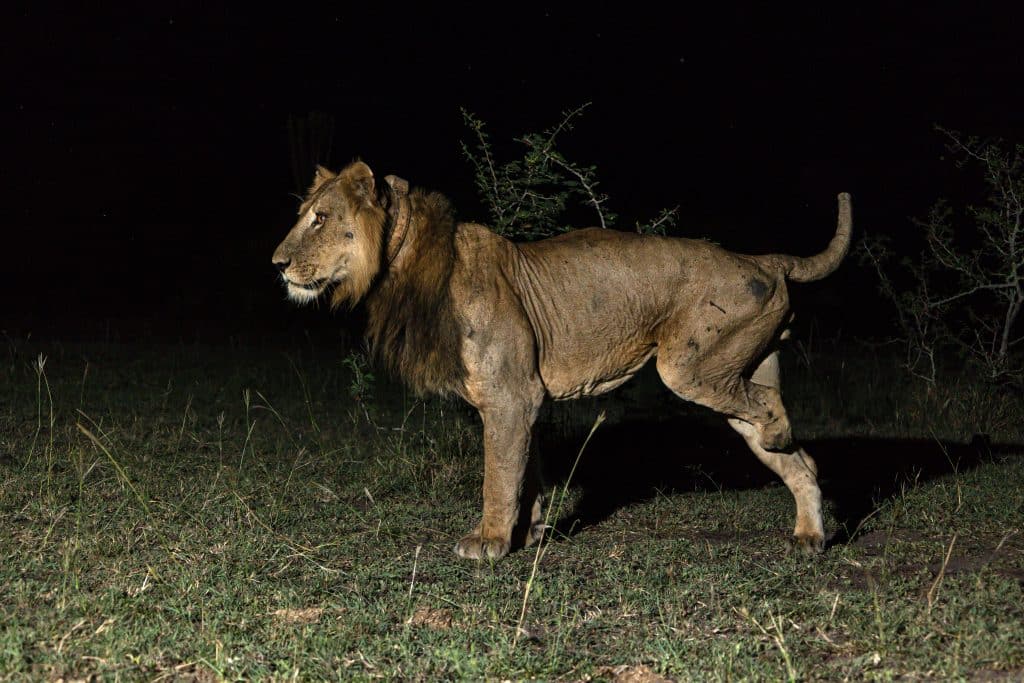
Jacob with his amputated leg.
Despite already being a challenging feat, it was even more difficult for Jacob. He only has three legs because he lost one to a poacher’s snare. Swimming that long and dangerous distance is incredibly hard for a lion with all four legs, and yet Jacob managed it with just three. This shows just how strong-willed and determined he and his brother Tibu are.
Crossing the Kazinga Channel was extremely risky. Here are some facts about the dangers they faced:
| Danger | Details |
| Crocodiles | The Kazinga Channel is full of crocodiles. Crocodiles are known to attack lions and other animals that enter the water. |
| Hippos | Hippos are very territorial and aggressive. They can attack lions that come too close. |
| Distance | The channel is almost a mile long. This is the longest distance lions have ever been recorded swimming. |
| Jacob’s Injury | Jacob has an amputated leg, making swimming much harder for him compared to a four-legged lion. |
Despite the immense challenges, Tibu and Jacob swam across the channel. Their perseverance shows how critical finding new territory and mates was for them. Such risks reflect how lions must constantly adapt and struggle to survive in their changing environment.
Conservation efforts
Conserving lions like Tibu and Jacob is crucial. Organizations like the Wildlife Conservation Network (WCN) and the Lion Recovery Fund (LRF) are tirelessly working to help lions survive and thrive in the wild.
One of the main challenges in lion conservation is human-wildlife conflict. In places like Queen Elizabeth National Park, lions often come into contact with humans and their livestock. This causes problems because lions might kill cattle, leading to tensions and sometimes retaliatory killings. Conservation programs work to reduce these conflicts by teaching communities how to protect their livestock and creating livestock enclosures, or “bomas,” that keep predators out.
Another challenge is poaching. Poachers target lions for their bones and other body parts, which can be sold illegally. Jacob’s story highlights how devastating poaching can be. After losing a leg to a poacher’s snare, Jacob still managed to survive but many lions are not so lucky. Efforts to combat poaching include working with law enforcement to catch poachers and educating communities about the importance of protecting lions.
Habitat loss is also a significant issue. As human populations grow, more land is converted for farming, settlements, and infrastructure. This reduces the space available for lions to live and hunt. Conservationists focus on securing and expanding protected areas where lions can roam free from human interference. Connecting fragmented habitats through wildlife corridors allows lions to move between different areas safely.
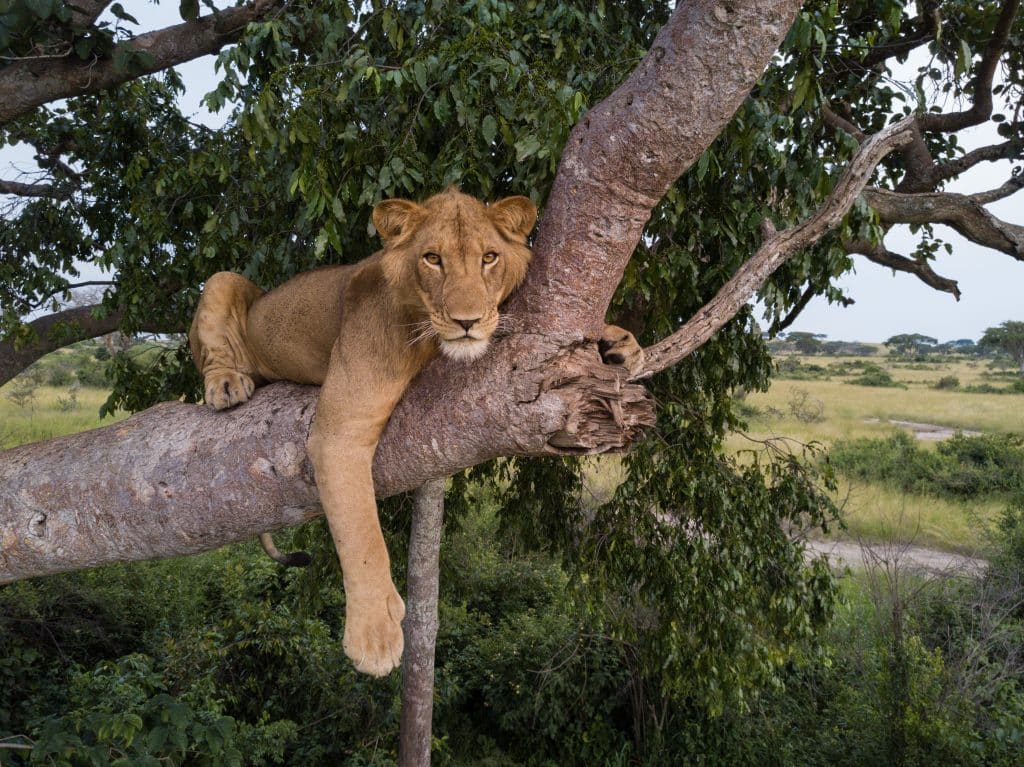
Jacob when he was younger, before losing his hind leg.
Monitoring and research also play a vital role. Scientists track lion populations, study their behavior, and understand threats they face. This knowledge helps create effective conservation strategies. Programs like collaring lions with GPS trackers allow researchers to monitor their movements and take action if lions move into dangerous areas.
The work done by WCN, LRF, and other organizations is essential, but they need support to continue. From donating funds to spreading awareness, everyone can contribute to lion conservation efforts. Community involvement and international support can significantly impact the survival of lions in the wild.
Conserving lions is not just about saving a species; it’s about preserving an integral part of the ecosystem and maintaining the balance of nature. Every contribution, no matter how small, can help make a difference for lions like Tibu and Jacob.
Readers can learn more and support the efforts to protect these magnificent creatures by visiting the full post at wildnet.org/two-lions-make-record-breaking-swim-in-uganda/. There, you’ll find more details and inspiring stories about lion conservation.
